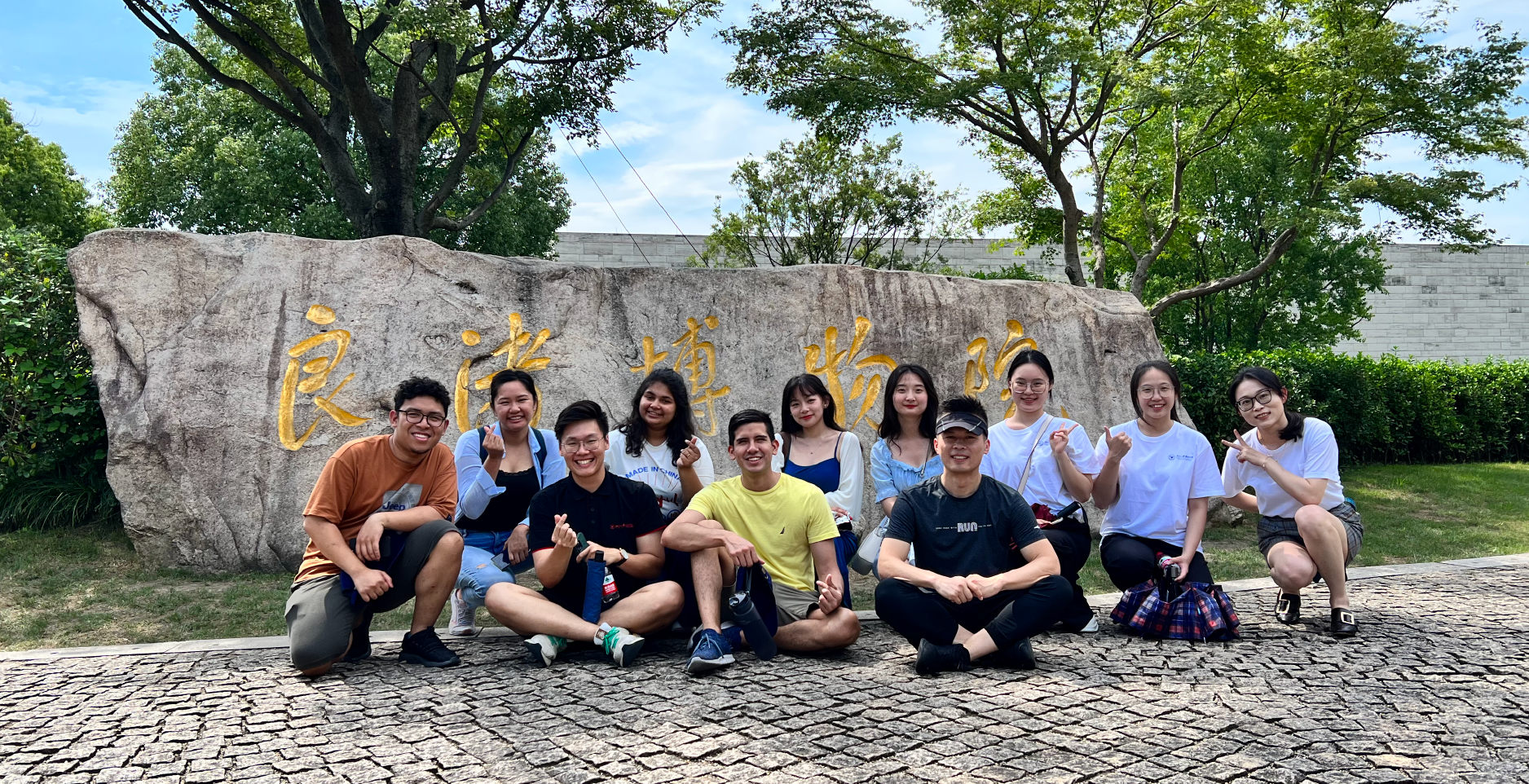The ZJUSOM International Summer School 2023 on Big Data and Business Analytics took place at the School of Management, both online and onsite, from July 3 to 7, 2023.
The Summer School was jointly organized by the School of Management, Zhejiang University (ZJUSOM), the International Research Center for Data Analytics and Management, Zhejiang University, and the Society of Management Science and Engineering of Yangtze River Delta Region.
Prof. Ming Hu from the University of Toronto, Prof. Wenguang Sun from Zhejiang University, Prof. Shu He from the University of Florida, Prof. Zike Cao from Zhejiang University, and Prof. Tian Lu from Arizona State University were invited as speakers to give presentations and share ideas regarding their academic research fields. Over 1000 participants, both online and onsite, joined in this academic activity and greatly benefited from this program.

The opening ceremony of the Summer School was hosted by Prof. Qingwei Jin of Zhejiang University. Prof. Junsheng Dou, Vice Dean of SOM, and Prof. Weihua Zhou, Director of the International Research Center for Data Analytics and Management, Zhejiang University, delivered welcome speeches.
On behalf of the School of Management, Zhejiang University, Prof. Dou Junsheng warmly welcomed the Summer School participants from all over the world. Prof. Dou said that the digital age has arrived, which has profoundly changed the way people think and behave. Data has increasingly become an important part of intelligent decision-making. Through this summer school, Prof. Dou hopes that everyone can learn the most cutting-edge theories and thoughts and master data analysis techniques and skills. More importantly, this summer school can stimulate everyones research enthusiasm and inspiration in this field.
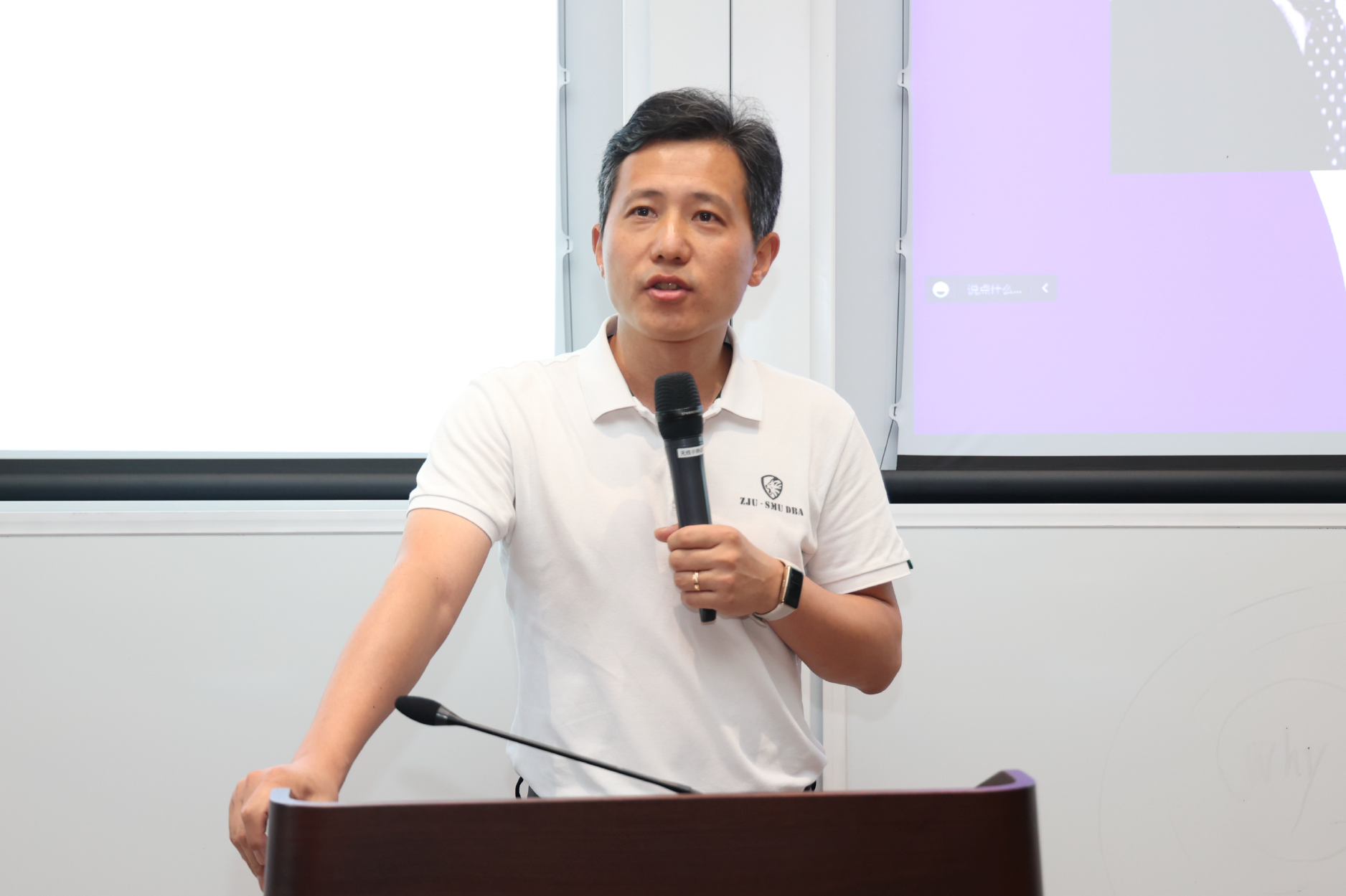
Prof. Weihua Zhou first expressed sincere gratitude to all the guests and organizers of the summer school. Prof. Zhou emphasized that big data and business analytics were developing fields, and their applications in various industries were becoming increasingly widely spread. E especially in the context of digital transformation, their importance is self-evident. He encouraged students to cherish this valuable opportunity, participate actively in discussions, and exchange and share ideas and experiences. After the welcome speeches, Prof. Jin introduced the whole program.
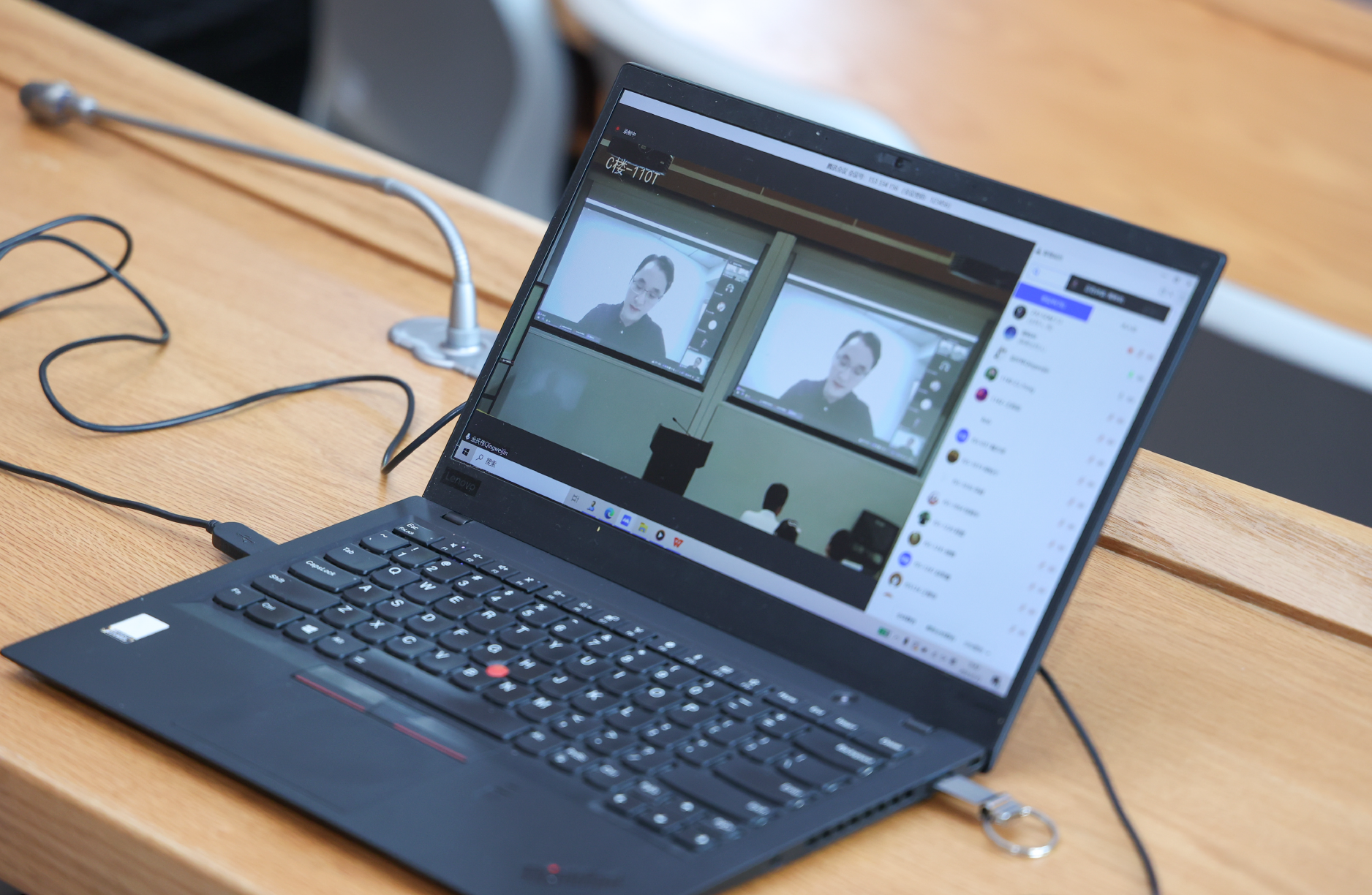
After the opening ceremony, the organizers provided a campus tour for onsite students. The onsite participants took the shuttle bus and visited the Zijingang Campus of Zhejiang University under the guidance of the teachers. Lets have a recap of the speakers thoughtful presentations .
|
■ |
Prof. Ming Hu (胡明教授): Topics in Revenue Management |
Prof. Ming Hu, from the University of Toronto, delivered a comprehensive introduction to the research on revenue management and pricing. He discussed the impact of pricing policies on revenue, consumer surplus, and social welfare. Starting from a simple pricing model, Prof. Hu provided a more comprehensive view, covering scenarios from fixed to stochastic, static to dynamic, and monopoly to competitive. He also discussed various aspects of demand and customer behavior under these settings, including stochastic demand, customer choice models , queuing systems, and strategic customers. Prof. Hu also discussed topics such as product assortment and bundling, two-sided pricing, and gave real-world examples, such as Amazons pricing policy, to help attendees understand. In addition to his lecture, Prof.Hu answered questions from both offline and online students, providing additional insights into the challenges and ethical considerations of implementing pricing strategies in practice. Attendees found his lecture and the Q&A session informative and engaging, gaining valuable insights into the complex world of revenue management and pricing .
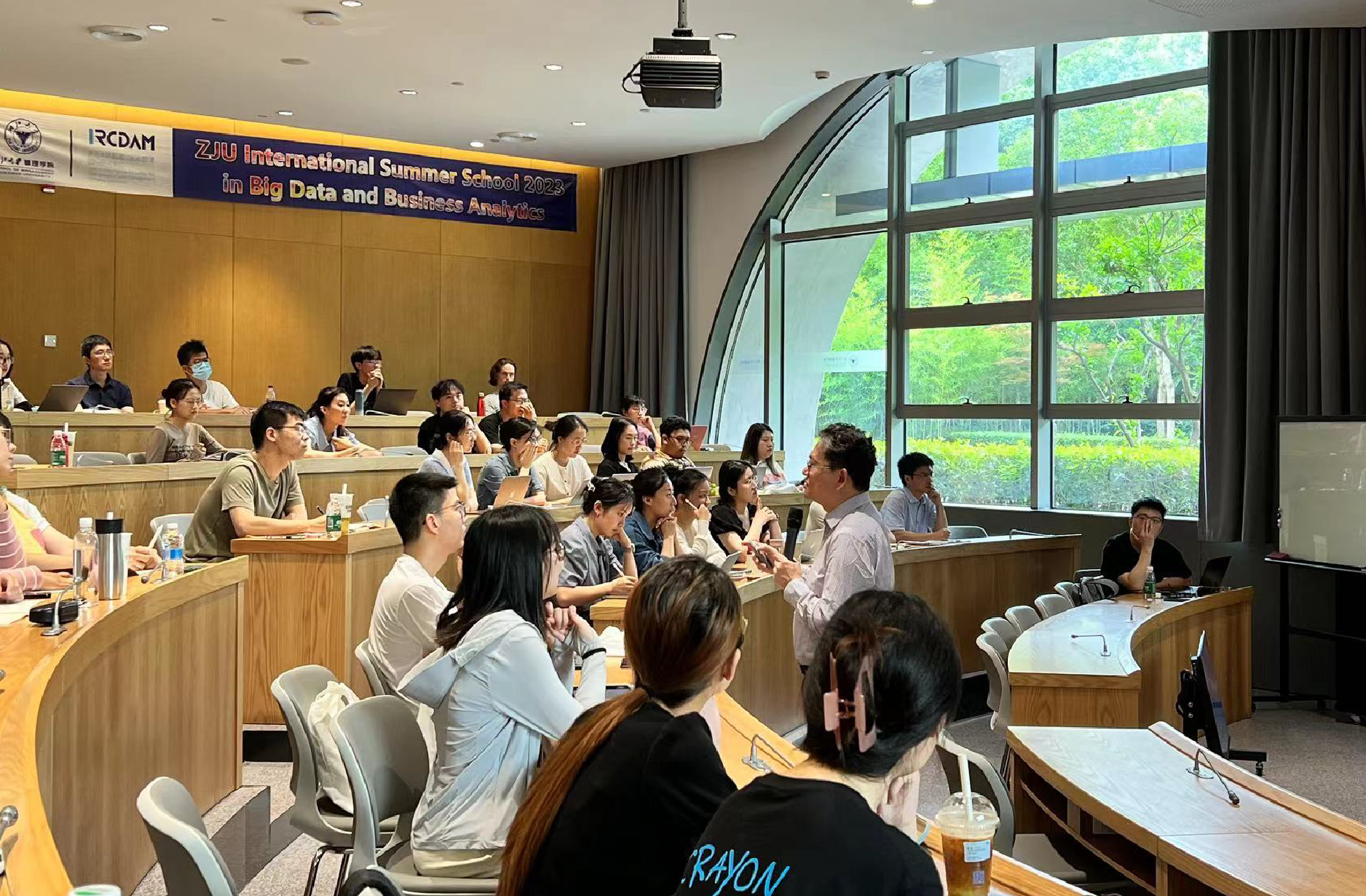
|
■ |
Prof. Wenguang Sun (孙文光教授): Large-Scale Global and Simultaneous Inference: Estimation and Testing in Very High Dimensions |
In the current business and economic society, various entities such as governments, organizations, small businesses, and large corporations have amassed vast and intricate datasets containing thousands or even millions of variables. These datasets often exhibit high dimen sionality and sparsity. Extracting valuable information from such Extensive data presents a new challenge that calls for Novel Principles, theories, and method. It requires the development of New Technology to Perform Large-SC Ale Statistics of the Numerous Model Parameters Simultaneously, Providing DeCision Support and Facilitating Risk Management.
During the Internetal Summer School Course, Professor Sun intropuced state-of-the method and data reSearch-scale static system. ESE Include Signal Detection, Sparsity Estimation, Multiple Testing, and Post-Selection Inference. Two Categorems Weerems Weee distinguished: global inference, which focuses on overall inference, and synchronous inference, which pertains to individual-level inference.
The course comprised four modules: an overview, scientific problems and solutions, related research, and new problems and directions. In the overview, Professor Sun initially presented practical application scenarios of signal detection, sparsity estimation, multiple testing, and post-selection inference in industry. By illustrating these methods with real-life examples, students gained an understanding of the close connection between large-scale statistical inference methods and daily life. They also developed a comprehensive awareness of the sparsity, multiplicity, and selection bi ases associated with large- scale data. This led to the introduction of scientific problems in large-scale statistical inference, specifically global inference and synchronous inference. The three modules covered specific topics such as global inference methods,compound decision theory, and multiple testing. During the lectures, Professor Sun also shared recent research and scientific experiences, introducing new problems and research directions in the field. For example, the integration analysis framework to address the significant information loss issue in tra ditional methods during The data reduction process in high-dimensional analysis was discussed.
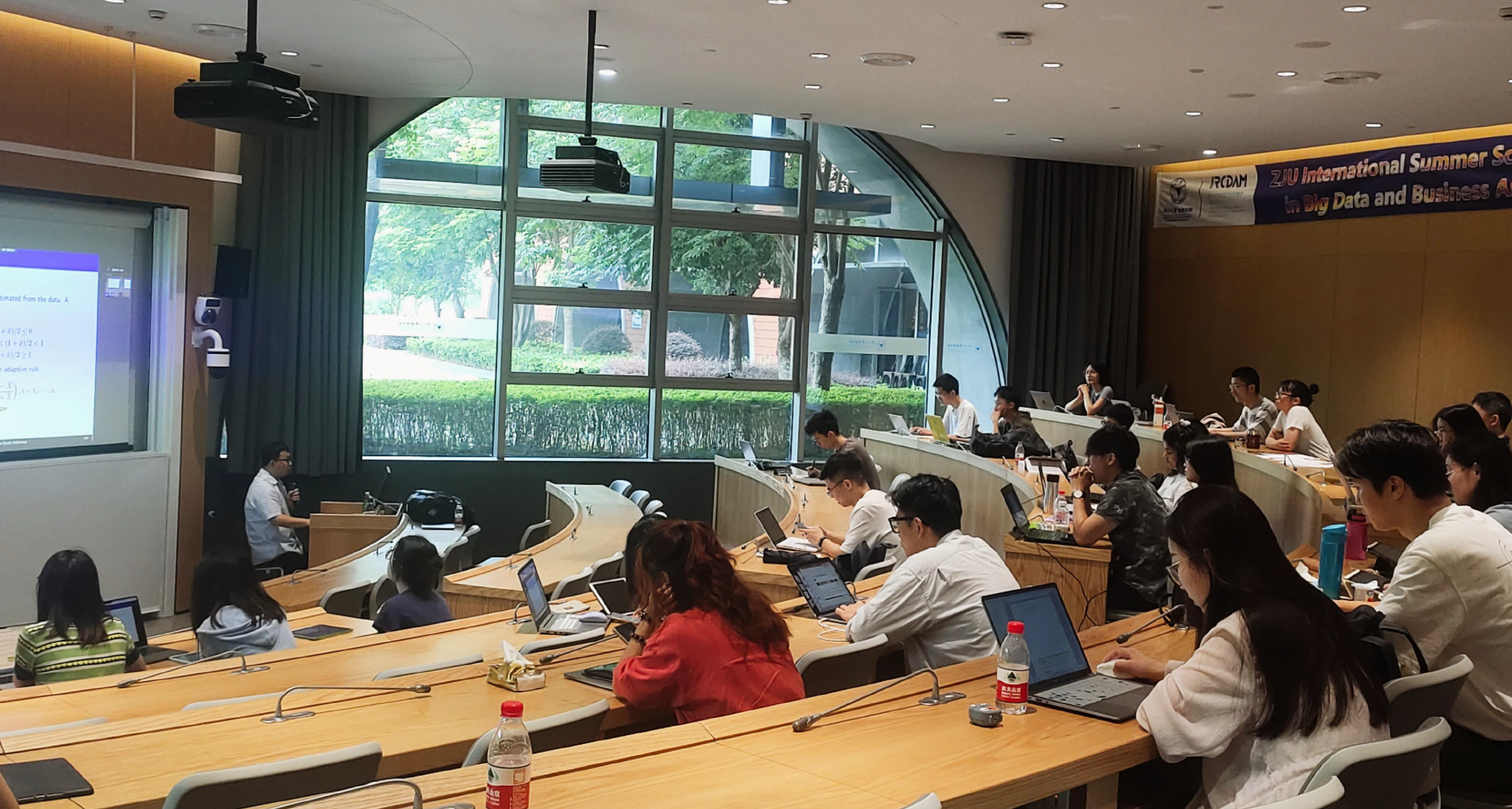
|
■ |
Assist. Prof. Shu He (何舒助理教授): The Economics of Platform: Applications in Dark Net Marketplace |
Prof. Shu He from the University of Florida presented an intriguing talk on combating dark net market transactions with the natural experiment research setting. First, Prof. He introduced the DID (Difference-in-difference) model, an analytical framework based on natural experimental design. Then, from an empirical perspective, Prof. He discussed two papers regarding combating dark net transactions. The first paper empirically evaluates the susceptibility of darknet transactions breaking down upon policing of participants on the platform and finds that enforce. ment efforts produce a negative effect on Subsequent transactions on the policed site, for both vendors in the same country and in different countries as that of the arrested perpetrators.The second paper causally examines the effects of introducing a search-cost-reduction technology on darknet transactions. The paper has conducted various analyzes to unveil the darknet market structure change and the potential underlying mechanisms when a search intermediary is depl. oyed. In this course, Prof. . He perfectly combined theory with vivid empirical cases, and students gained a comprehensive and profound understanding of natural experimental research design.
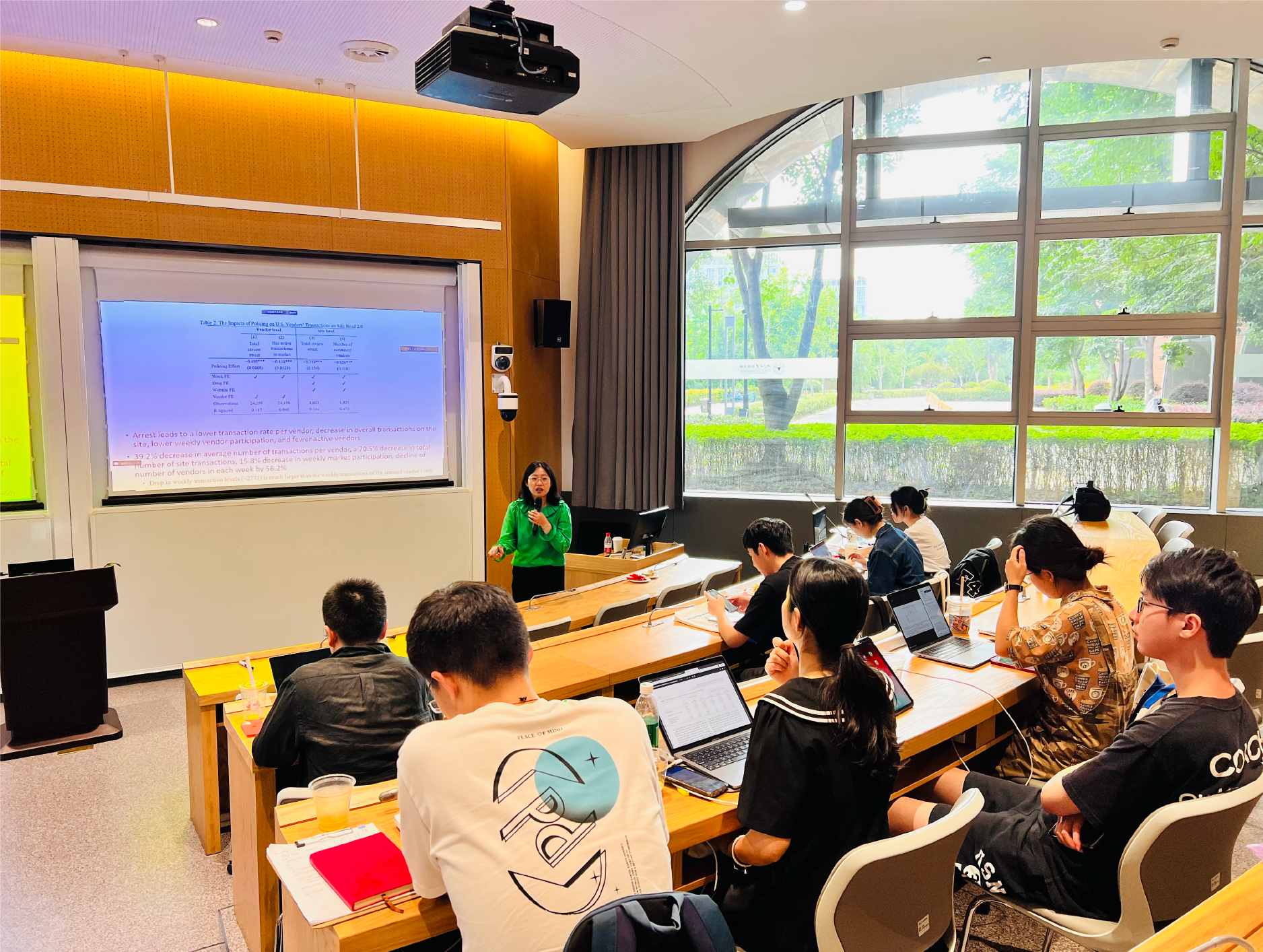
|
■ |
Prof. Zike Cao (曹子科研究员): Online User Behavior Research with Big Data |
Prof. Zike Cao from Zhejiang University brought us a wonderful report with the theme of "Online User Behavior Research with Big Data." Prof. Cao introduced his research paper to show how to use big data technology to analyze individual behaviors and economic phenomena. He first showed the trend of big data and the advantages of using advanced techniques in managerial studies and then introduced the channels for obtaining research data. Next, he introduced the characteristics of big data in research and the ways it can be used. In the second part of the lecture, three research strategies for using big data were introduced: answering important questions, making predictions, and conducting approximate experiments, including natural experiments and matching. Based on his own research focus, Prof.Cao provided a lively introduction to the potential outcome framework and how it can be applied to solve problems in management and business research. At the end of the lecture, Prof. Cao answered the students questions in detail, deepening their understanding of the use of big data technology for research and expanding their ideas, which benefited the participants greatly.
|
■ |
Prof. Tian Lu (陆天助理教授): Big Data and Machine Learning in Fintech Research |
Prof. Tian Lu from Arizona State University brought a wonderful report on the theme of "Big Data and Machine Learning in Fintech Research." Prof. Lu first introduced us to the concept and background of financial technology (Fintech), which can promote the transformation and development of the financial industry by optimizing operations, simplifying processes, and reducing costs. It is worth noting that financial technology can effectively promote the development of financial inclusion, which is an important branch of the financial industry. . Lu then presented a research paradigm on how to combine cutting-edge methods such as big data, machine learning, deep learning, and reinforcement learning with behavioral theory to improve the operational efficiency and profitability of enterprises in microfinance. In addition, Prof.Lu also discussed some cutting-edge topics in the field of fintech, such as human bias and machine bias, and explored how to use methods such as big data, machine learning, and human-machine collaboration to solve these problems. Finally, Prof. Lu also emphasized the significance of using mixed methods to conduct theory-driven empirical research. In this course, the students gained a lot and actively interacted with the teacher.
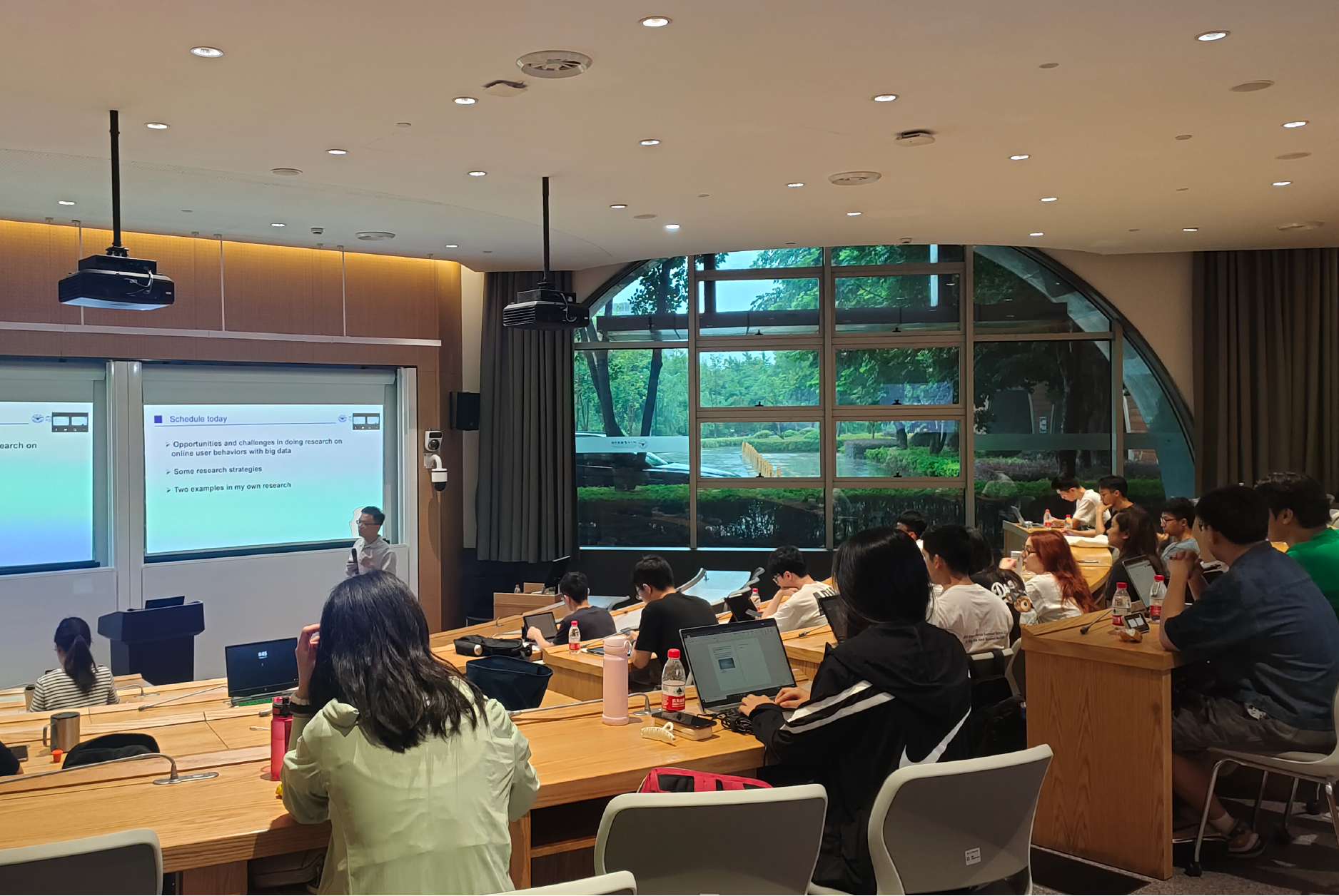
The organizers also prepared campus activities as well as cultural activities for students attending onsite courses.
This summer school was open to both online and onsite registration for teachers and students inside and outside the school. On the first day of the summer school, the organizers offered the onsite participants a campus tour to learn more about the universitys facilities as well as student life.
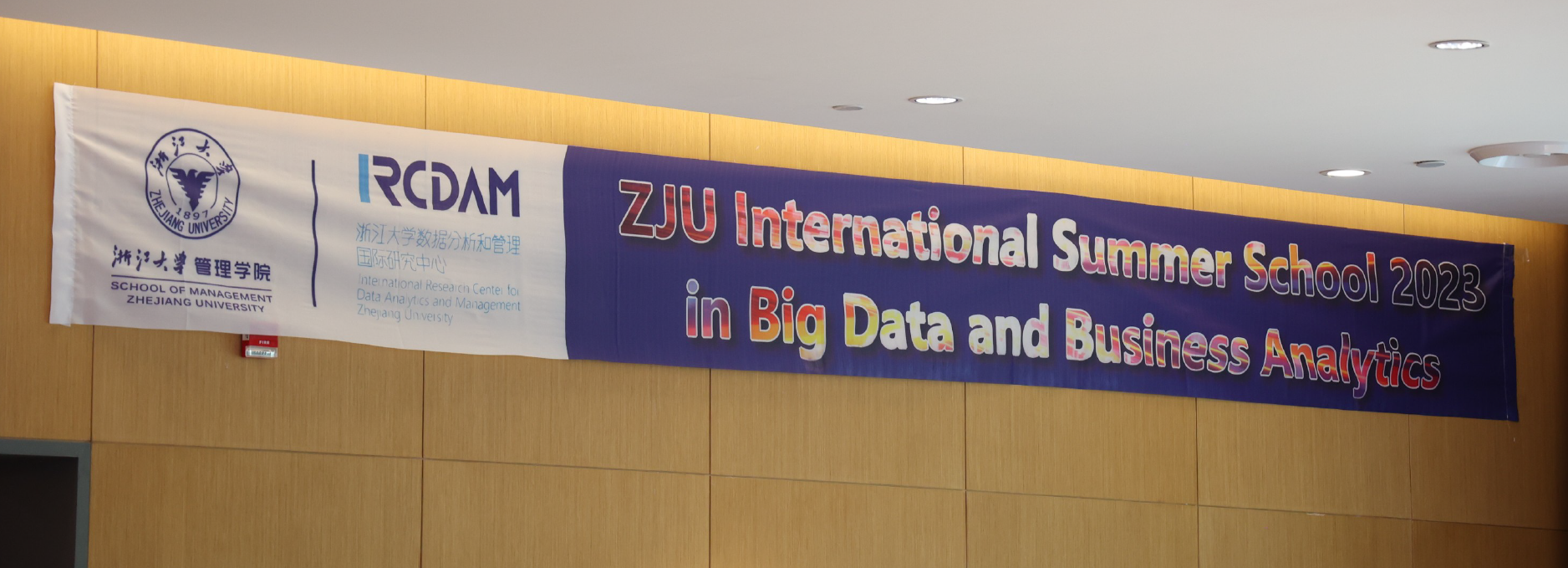
At the end of the summer school, some participants visited the Liangzhu Museum to explore the charm of the Liangzhu civilization.

In the era of big data, data-driven approaches are the essence and soul of business transformation. Nowadays, the development of enterprises requires comprehensive digitalization, achieving automation, agility, and intelligence in operational management through real-time data analysis and the integration of machine learning. Therefore, data has become a new source of power for enterprise development, and intelligent decision-making serves as the driving system for enterprise growth, determining the efficiency of operations and the level of management. Smart decision-making and management, as one of the most cutting-edge research fields today, hold enormous potential for research and application. During this summer school, we focused on achieving automation, agility, and intelligence in operational management through real-time data analysis and the integration of machine learning. We aimed to foster communication on multiple scales and fields and develop feasible approaches to strengthen international cooperation and advance the frontier of management science. This Summer school was also a great chance for the School of Management at Zhejiang University to promote academic exchanges with other institutions.
